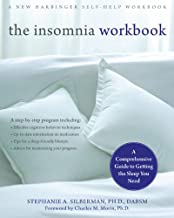Insomnia
Insomnia is a sleep disorder in which you have trouble falling and/or staying asleep. The condition can be short-term (acute) or can last a long time (chronic). It may also come and go. Acute insomnia lasts from 1 night to a few weeks. Insomnia is chronic when it happens at least 3 nights a week for 3 months or more.
Cluster Number:
Wiki Number: W106
Diagnosis: Insomnia
US Patients: 20-30%
World Patients:
Sex Ratio: M; W2
Age Onset:
Brain Area: sleep apnea; hypothalamic-pituitary-adrenal axis – releases cortisol;higher metabolic rates in PET brain scans; heritability
Symptoms: inability to fall or stay asleep; daytime sleepiness, low energy, depressed mood, dangerous lack fo concentration
Progression:
Causes: alcohol/benzodiazapine/opioid-induced; changes in sex hormones in elderly
Medications: not recommended for more than five weeks;
Therapies: sleep hygiene = consistent bedtime; quiet and dark room, and regular exercise. CBT; overnight sleep study
Youtube Video: Insomnia: when you’ve tried everything
and still can’t sleep.
Amazon or Library Book: the insomnia workbook
Click the book to link or order from Amazon.

